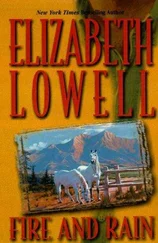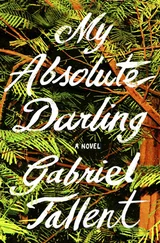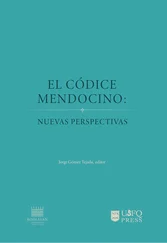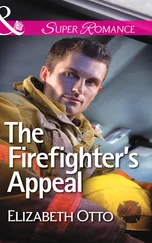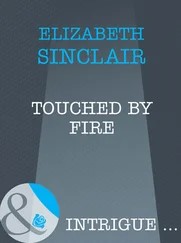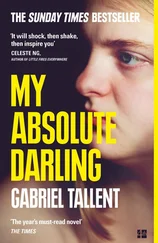The girl was handed over to the younger aunt, the smarter aunt, who managed to get them both to the country across which Ximena drives, high on the sense of destiny that attends certain self-destructive decisions. Caffeine sweeps every mote of delusion from the white room of consciousness. Now she understands. Bruce was still sleeping with her when that baby was conceived with the lover, when he came inside that albino with her little smile who probably told him she was going to keep it, she was going to have this baby with or without you , and Bruce would have looked from one to the other of the two women in his life and seen one whose sorrow was unrelenting and one whose need had a beginning and an end. A kind of end. As Ximena’s grief never will.
The town has gone ahead without her: a new traffic light on Highway 1, a McDonald’s painted a shade of blue sanctioned by the Coastal Commission, a hotel at cliff’s edge where once a grove of towering shaggy eucalyptus had sifted the wind. In a dim room smelling of latex paint she opens the window for the evening breeze and leans out: yes, tatters and coils of beige-green bark litter the margin of bare ground between cliff and raw hotel. Ximena slides between newish sheets, and after a time realizes that she has been awake far too long. After such a long drive sleep is rightfully hers, but this paint-stinking room withholds it, the rustle of clean sheets repels it, impersonal pillows offend it. She tosses and moans and scratches fleeting itches, waking in wan eleven A.M. light with a headache and a weird chemical taste in her mouth.
Which could be guilt, or the premonition of guilt.
As in: doing something that leaves a bad taste in your mouth.
Or planning to.
Having driven halfway across the country in order to.
If she packs now and heads back to Iowa no one will get hurt. Breakfast — no, lunch — and she’ll gas the car up for the long drive back across the flat states. Finally she grasps the essential rightness of signing over Smoke River to Bruce and his lover: to have stayed would have inscribed her obsession with the two of them in the marrow of her bones. As it is, she has been free — more or less free. Out over the ocean, a horizon-wide brushstroke of fog bides its time, but until it advances on the town every edge and outline has the chill clarity of coastal light, every little shingle on every little roof diamond-exact. Even the McDonald’s is pretty. Where Highway 1 is, briefly, Main Street, logging trucks roar through, leaving a wake of diesel fumes and dancing evergreen twigs. Ximena turns pages in a bookstore, the rustle of suffering, herself older than the last time she turned pages in this corner, wiser, tucks of disappointment around her smile. Even if she did want to call Bruce, she no longer has his cell number. That smallest, most ordinary token of acquaintance, and she doesn’t have it. Fuck someone for ten years. She’s not even thinking about love. Not love. Just all that fucking. Think how much fucking was involved. How many times and how nakedly, fucking till he tells you you’re an angel. She buys a couple of paperbacks and after paying for them can’t remember their titles or what they’re about. On the sidewalk she contemplates the new streetlights the town has paid for, black cast-iron columns ascending to frosted globes meant to evoke the gaslights of an earlier, more genteel thoroughfare. Who are they kidding: Smoke River had always been the surly, xenophobic logging town. Its streets had never been lit. Yet among the improvements is a storefront advertising handmade local ice cream.
She’s sitting at a table when, on the other side of fogged plate glass, a woman pauses to stare, the baby on her hip. Bruce’s new wife, from the photograph. Staring at Ximena? No. Of course not. At the menu. Wondering if the ice cream’s organic, if it’s safe for baby, or for her given the allergies that must come with that pallor. See her private half-smile, because the baby’s tugging on a lock of her hair and that’s cute — it feels cute, Ximena can almost feel how it feels. Tug, tug. If this is hate it is small-scale, tight in its focus, and not fun, not energizing: it simply means you see clearly. You concentrate. Because here she is. Her eyebrows have been replaced with the single moronic band of her backward baseball cap, her hipster jeans try too hard, her Converse sneakers say she’s already afraid of getting older, but in this war, which this girl has no idea is a war, it’s Ximena who’s the loser. This girl has a greater claim on the world than she has. First there’s the baby. That is a claim. Then there’s Bruce. This girl can be awkward and foolish and inept, and still when he wakes and yawns and rolls over this is the face Bruce sees, those are the eyes looking back at him and not Ximena’s, and as long as he wants her eyes looking back at him she has a hold on this world, and Ximena, who has lost his gaze forever, has no hold at all.
It’s true what her lawyer said. Ximena has never met this person before. This person squats. The baby dismounts. Across black-and-white checkerboard tiles the toddler advances with the lordly shamble of a drunk who finds himself charming. Advances toward Ximena , his surreal little monkey hand with its actual greedy fingers seizing the cup on her table just as she jerks it away, their grabs clashing, the chocolate orb slobbering down her shirt to her lap, cradled there till she jerks her legs apart and lets it plop to the floor, his slow mother dragging the toddler back, vehemently apologizing, but it’s clear she hopes for interruption, forgiveness, kindness, because he’s a baby after all and maybe what happened was even kind of funny. But Ximena wipes theatrically at the chocolate Rorschach blot. She can’t help thinking this person is a bad mother, letting this kid walk right up to strangers, steal food from them, and then expecting to hear Don’t worry about it even as the kid picks up the orb from the floor and dabbles it at his mouth, which causes his mother to say Don’t sweetie that’s nasty. At her sharpness the baby throws the lumpen chocolate, which skids along the winding smear of its own melting. They all watch. Suddenly the mother thumps down on her ass with her legs stuck out on either side of the baby, letting her exhaustion show, and Ximena, who has had no intention of pitying her, feels the swift unfolding of empathy, this woman or girl close to tears from embarrassment and not knowing what to do. No lipstick today, her lips barely a shade darker than her skin, fair except for the grainy redness flaming up her throat, an odd way to blush but interesting to watch. “Look, I am sorry, it’s his age, there’s a lot going on at one year old, all day he’s been crazy to get away from me, I’d like to buy you another ice cream, please let me buy you another ice cream, what were you having?”
“Oh no, no, really, no need for that, it’s all right.” She didn’t intend to say anything so nice and is surprised.
“I’d like to. Chocolate, right? Please. It would make me feel better.”
Ximena doesn’t say Look, the ice cream cost a dollar seventy-nine, the shirt was three hundred bucks and is maybe my favorite piece of clothing in the world.
An aproned girl has emerged from behind the counter to crouch with a wet rag and dustpan, muttering No problem, no problem, you guys, no problem. In the relief from tension afforded by her mopping, the two strangers look right at each other. When their eyes meet there’s the kind of click you get when your gaze meets a gaze of equal, kindred but not rivalrous, intelligence. Likeness like this — likeness of minds? in the slant taken on the world? — is rare, the affinity arising from it unmistakable, yet in this case it is worse than useless. Nothing can come of it. The baby sucks his fist, and his mother says to Ximena, “Let me make this up to you.” Ximena shakes her head. “But your shirt is ruined.” Fine, it’s fine, really, she’s got to get on with her day, seriously don’t worry about it, Ximena self-conscious as she stands, dismayed that her blotched shirt has engendered this fresh round of apologies, saying it’s nothing, deciding to get out of there but wanting a last glance at this person she meant to dislike — to hate — and looking over her shoulder she walks right into an entering customer who says, “Oops,” and then, “Hey,” and then, “Wow,” and she is staring up into the eyes that are Bruce.
Читать дальше


